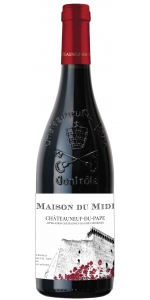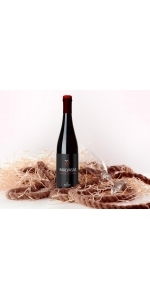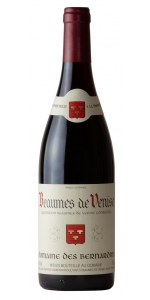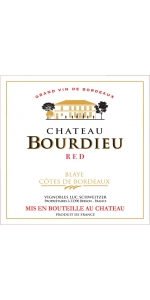Accornero Brigantino Malvasia di Casorzo 2023
6 bottles with free shipping for: $180.00
12 bottles with free shipping for: $300.00
| BUY MORE! SAVE MORE! | ||||||||||||||||||||
|
| Country: | Italy |
| Region: | Piemonte |
| Winery: | Ferraris Agricola |
| Grape Type: | Malvasia |
| Vintage: | 2023 |
| Bottle Size: | 750 ml |
Accornero Brigantino Malvasia di Casorzo is made from 100% Malvasia.
Malvasia is a pleasant, sweet wine, low in alcohol content, that can be enjoyed at any time of day. Made exclusively from grapes grown in the hilltop vineyards of Casorzo and neighboring , it’s the pride and prestige of the area. It has always been the star wine of all local festivals. A comfort wine for all seasons and reasons, it has an aroma evocative of roses. The rich, aromatic wine is ruby-red, vibrant and slightly frothy. lt can be paired with desserts, fruit salads and sweets, but it can also be enjoyed as an aperitif or as a drink for any party occasion.
Color: Vibrant Ruby red
Bouquet: Sweet and aromatic, floral
Taste: Aromatic with rose fragrances
Great companion to desserts, such as biscotti / cantucci (Italian almond biscuits from Piemonte)
The Ferraris Estate produces about 130,000 bottles of wine (about 50,000 of Ruchè) from 18 vineyards covering 25 hectares. Luca Ferraris Agricola is the largest family owned agricultural company in the seven municipalities of the Ruchè-growing region.
Date Founded: 1999
To understand how the Luca Ferraris winery came about we must trace the story back to the nineteenth century when Luca’s great-grandfather Luigi Ferraris emigrated to America during the gold rush. Striking gold, he sent the money back to his wife Bruno Teresa, giving her the chance to realize her dream. After her husband passed away in 1921, she bought the house in Via al Castello that until recently housed Luca’s winery. Two years later, Luca’s grandfather Martino purchased II Casot, at the time nothing more than a simple rural hut in the middle of 40,000 square meters of land. Martino planted vines and bought barrels to make wine with his own grapes in his own cellar. He started by selling his wine to wholesalers in the area, then later began to increase his business by selling larger bottles to individuals traveling back and forth to Turin every week on horseback. Today on that land we have one of our most representative vineyards: Vigna del Casot.
Following the footsteps of Luca’s grandfather Martino, it was up to his father to decide what to do with the family’s passion for wine. In the time of the great industrialization by Fiat in Turin, he moved to the city as his peers did, but he also decided to keep his passion for the vineyards alive by collecting and giving its grapes to the agricultural cooperative in the village. That continued every year until 1999, when after graduation as an agriculturist, Luca began working at the family business, restoring the old cellar and starting to make wine from the vineyards. It was the turning point for the operation, and perhaps even for the Ruchè variety. In the area of the seven municipalities producing Ruchè, Luca was the first to thin vineyards to improve their quality. He wanted the company to specialize exclusively in high-quality production and also began to travel the world looking for new customers and markets. Production was raised from 10,000 bottles in the 2000 vintage to 60,000 in 2003 thanks to a partnership with Randall Grahm, the Californian winemaker founder of already famous for his Bonny Doon Vineyard. Today the Ferraris estate produces about 130,000 bottles of wine (about 50,000 of Ruchè) from 18 vineyards covering 25 hectares. Luca Ferraris Agricola is the largest family owned agricultural company in the seven municipalities of the Ruchè-growing region.
Winery:
The new Luca Ferraris winery was built in 2009. It was finished on August 31, just in time to press its Viognier harvest the following day. The switch to a more modern winery was necessary – despite the global economic climate, the company was growing rapidly, thanks in no small measure to the increasing popularity of Ruchè. The building, 1,000 square meters wide and three stories high, is on the main road between Asti and Castagnole Monferrato. The cellar and storage room are underground, where the temperature and humidity are constant year-round. The ground floor is where all production, from pressing to bottling, takes place. Advanced machinery allows Ferraris to produce the best possible wines without interfering with their natural characteristics. This is possible only through the combination of modern technology and the knowledge of old winemakers. Luca’s family taught him not to pander to a wider but less-educated public by producing wines that betray the typical characteristics of each variety. Also on the ground floor, behind the bottling line, are the company offices where the Luca Ferraris team meets to discuss production and marketing strategies. Above the offices on the first floor is the wine tasting room that seats up to 30 people. Large windows overlook the production area allowing tasters a view across the winery – illustrating the total transparency in Ferraris’ production.
Maison du Midi Chateauneuf du Pape Rouge is made from 84% Grenache, 11% Syrah and 5% Mourvèdre.
Maison du Midi Chateauneuf-du-Pape is designed to be a very fruity and fresh CDP with structure. Different flavors of red and black fruits with a hint of pepper and spice notes.
Review:
"The 2023 Châteauneuf du Pape comes from the Brotte family (where the fruit is sourced) and is 90% Grenache and 5% each Syrah and Mourvèdre. Already bottled, it has a juicy, upfront, undeniably delicious style that brings both red and black fruits, some peppery, herbes de Provence-like nuances, medium to full body, and an upfront, ready-to-go style."
- Jeb Dunnuck (Importer Highlight: Fran Kysela ; July 2024), 91 pts
Rinaldi Malvasia di Castelnuovo Don Bosco Tasting notes: Frizzante style, with hints of black pepper, cherries and red fruit notes. A frothy, & slightly sweet aperitif…
Vines are planted on limestone soils. Only 63 hectares exist of this very small DOC of Malvasia di Castelnuovo Don Bosco. Grape varietal is Malvasia di Schierano.
Pairs well with dessert and Asian food.
Bernardins Beaumes de Venise Rouge Cru Cotes du Rhone is made from 65% Grenache, 25% Syrah, 5% Mourvedre and 5% Grenache Blanc.
Bright ruby color with cherry tinges. Complex black fruit aromas on the nose enhanced by spicy notes. Rounded palate with good length.
The wine is drinking well right now and can be kept for another 10 years.
Situation
Spreads out over the south-east side of the Dentelles de Montmirail hills, in Beaumes de Venise in the southern part of the Rhone valley.
Terroir
On a poor sandy, hungry and arid soil consisting of tender limestone and gritty zones of sandy mollasse.
In the vineyard
The vineyards and their terroir are the essence of our wines. This is where everything starts and where we focus our efforts throughout the year. You can’t make great wine without great grapes.
The viticulture is essentially done by hand. Five people work full-time in the vineyards. They are supplemented by seasonal employees who work during bunch thinning and the harvest in order to bring out the very best in our vines. Working by hand and the attention each vine gets are fundamental. Pruning, de-budding, trellising, leaf removal and picking are thus carried out by hand with the utmost care.
We prepare the soil by using good old-fashioned ploughing. Organic compost is made from grape marc (the discarded stalks and skins).
As a way of protecting the plants, we only use phytosanitary products when necessary and within strict guidelines by staggering the treatments appropriately, to minimise the amount of chemicals used. We prefer to use as much as possible manual and organic techniques . Leaving natural grass cover, removing buds and leaves from the vines, preserving biodiversity around the vineyard: olive, almond and cypress trees, wild rosemary and capers.
Winemaking
We make two red wines at the estate. Terroir wines shaped by the two classic Côtes du Rhône varieties: Grenache and Syrah. We don’t follow any winemaking recipe but are constantly searching for the perfect expression of terroir and each vintage’s particular characteristics. We don’t go for overripe grapes and over-extraction, as we think the wine has to stay refreshing and balanced.
Leaving the wine for 15 days in concrete vats, we try to gently extract the tannins and anthocyanins essential for the wine’s structure and colour. The wine doesn’t come into any contact with wood during ageing. This way the characteristics of our terroir can fully express
Serve with a meal especially red meat, game and cheese.
Review:
"Smoky bacon, bay leaf and olive brine. This is very fine for a whole-bunch style, with lovely tannic finesse and texture. Powerful, tannic and cleansing, yet compact, with driving acidity, a dry, savoury finish and perfect balance. A good vintage, for what is a reliably good-value southern Rhône pick. Vineyards in conversion to organic; fruit is whole-bunch fermented.- Matt WALLS"
- Decanter (October 1st 2024), 94 pts
Bernardins Muscat Beaumes Venise VDN 100% Muscat petits grains (75% Blanc, 25% Red)
Copper/rose hue and ripe soft aromas of orange, spice and flowers. The wine is full bodied with the texture of silk and flavors of orange custard, white peach, pear, apricot, toffee and orange peel.
The vineyards and their terroir are the essence of our wines. This is where everything starts and where we focus our efforts throughout the year. You can’t make great wine without great grapes.
The viticulture is essentially done by hand. Five people work full-time in the vineyards. They are supplemented by seasonal employees who work during bunch thinning and the harvest in order to bring out the very best in our vines. Working by hand and the attention each vine gets are fundamental. Pruning, de-budding, trellising, leaf removal and picking are thus carried out by hand with the utmost care.
We prepare the soil by using good old-fashioned ploughing. Organic compost is made from grape marc (the discarded stalks and skins).
As a way of protecting the plants, we only use phytosanitary products when necessary and within strict guidelines by staggering the treatments appropriately, to minimise the amount of chemicals used. We prefer to use as much as possible manual and organic techniques . Leaving natural grass cover, removing buds and leaves from the vines, preserving biodiversity around the vineyard: olive, almond and cypress trees, wild rosemary and capers.
In the spirit of respecting traditional techniques and the best elements of modern technology, cellar manager Andrew Hall and his winemaker son Romain Hall take family traditions very seriously.
When making our wines, the Muscat de Beaumes de Venise plays a central role and requires great care. After picking the grapes by hand, we press them straightaway to ferment the juice without skins. We don’t add any yeasts and keep the alcoholic fermentation in check by temperature control. Vin Doux Naturel winemaking involves stopping fermentation to preserve the grapes’ natural sweetness. During vinification, we watch the vats day and night and add the fortifying spirit just at the right moment. At this stage, the wine’s final balance is at stake. The wine is then aged in stainless steel tanks for 6 months before bottling.
Review:
"Butterscotch and apricot jam aromas. A lighter vintage of this cuvée, but very fresh and drinkable, and the best Muscat of the vintage by far. 110g/L residual sugar. In conversion to organic. - Matt WALLS"
- Decanter (November 2024), 91 pts
Bourdieu Blaye Cotes de Bordeaux is made from 87% Merlot, 10% Cabernet Sauvignon and 3% Cabernet Franc.
Chateau Bourdieu Blaye Cotes de Bordeaux offers a beautiful red ruby color deep and intense. It exhales red fruits and blackcurrant aromas, completed by notes of redcurrant. The mouthfeel is round and juicy, with a smooth, well integrated tannins that offers a nice structure and a long finish.
Perfect with a magret de canard (duck breast) or a filet of beef.
Review:
"Brooding blackcurrant, black cherry and cassis combine beautifully with fine tobacco and cedar notes. Persistent and concentrated with satin tannins and supporting acidity. Long and finessed."
-Decanter, (July 2024), Gold Medal - 95 points
- back
Jean Reverdy Sancerre Blanc is 100% Sauvignon Blanc
Single vineyard. Vinification: cold fermentation in stainless steel tank, no oak, no malolactic fermentation.
Sweet, fruity and clean. White flowers (acacia, jasmine) and citrus fruits aromas. Perfectly balanced.
A delicious wine, perfect with fish dishes, especially salmon, and a local goat cheese Crottin de Chavignol.
Holocene Sidereal Pinot Noir is made from 100 percent Pinot Noir.
Single Vineyard dry-farmed, Organic practices
100% whole cluster
Fermented with native yeast
Extended maceration, with gentle extraction techniques
14 months in 20% new French oak
Bottled unfined and unfiltered with minimal SO2
The word sidereal means relating to the stars, particularly when measuring time or astronomical events. Which is weird for an earthly delight of a wine that makes time stand still while you attempt to decipher a vast array of aromas ranging from blackcap raspberries and cherry blossoms to wet slate and moon dust. Blackberries rule on the palate, with Assam tea, bay leaf and black pepper flavors easing along a lithe and nimble mouthfeel. Sidereal is also balance personified







-150x300.jpg)




